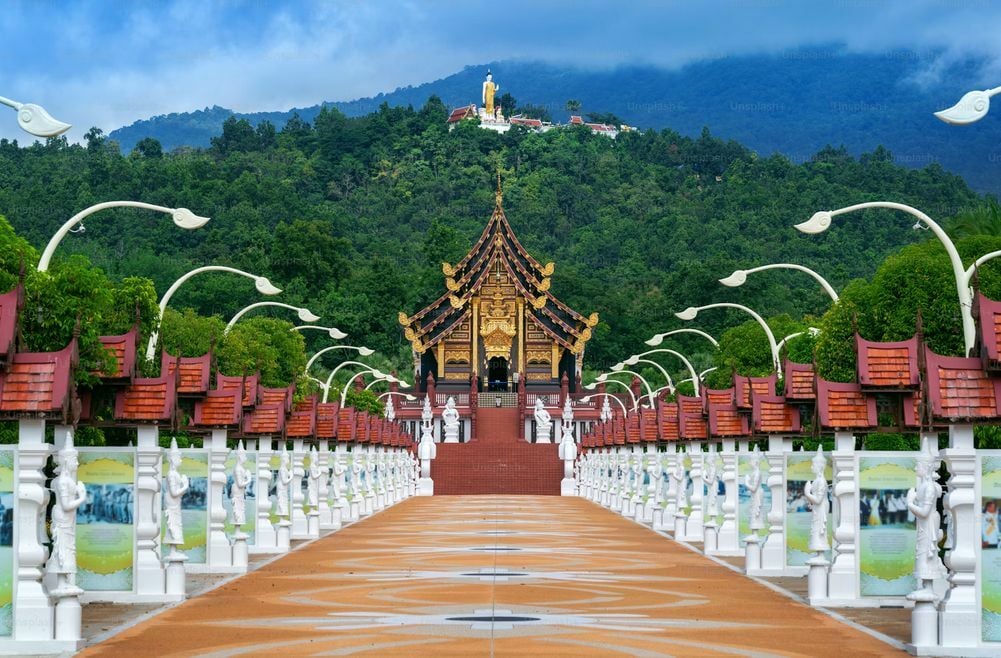Retirement in Thailand as a couple

Dreaming of retiring to Thailand with your better half? You’re not alone. Thailand, with its sun-kissed beaches, lush landscapes, and vibrant culture, has become a haven for couples looking to spend their golden years in paradise. Whether you’re enticed by the tranquillity of rural towns or the bustling expat communities in cities like Hua Hin, retiring in Thailand offers a blend of adventure and relaxation that’s hard to beat.
What are the best places to retire in Thailand?
Deciding to spend your retirement years in Thailand is a move that will fill your days with sun, culture, and unparalleled ease. Yet, choosing the perfect spot to call home is key. Let’s dive into a few destinations that stand out for their appeal to retired couples looking for relaxation, adventure, and a high quality of life.
Chiang Mai emerges as a top contender, especially if you’re fond of cool climates and a mountainous backdrop. This northern city pairs its rich history with a laid-back lifestyle, offering you both the tranquillity of the countryside and the convenience of city living. Here, the cost of living allows for a comfortable lifestyle without breaking the bank.

Heading south, Hua Hin presents an enticing option for those who dream of seaside retirement. This beachside town combines modern amenities with small-town charm, all just a few hours’ drive from Bangkok. It’s known for its superb golf courses, vibrant expat community, and health-conscious social scene, making it ideal for active retirees.
Pattaya, while known for its bustling nightlife, also offers quieter residential areas perfect for retirees. The city caters to a diverse range of preferences, with plenty of entertainment, dining, and shopping options. The availability of high-quality healthcare services is another plus, ensuring your peace of mind during retirement.
Koh Samui offers a tropical island lifestyle with all the conveniences needed for comfortable living. Its natural beauty, with pristine beaches and lush landscapes, is matched only by its thriving expat community. Whether you’re seeking adventure or relaxation, Koh Samui has something to offer.
Selecting the right locale is crucial to your retirement happiness in Thailand. Consider your lifestyle preferences, budget, and must-have amenities when making your decision. Each of these locations offers a unique blend of benefits, ensuring that there’s somewhere perfect for everyone.
What’s the money like there for retirement in Thailand?
When eyeing a serene retirement in Thailand, it’s crucial to get the lowdown on the financial landscape. Thailand’s cost of living, while lower than many Western countries, requires a keen understanding to navigate effectively. So, let’s dive in.
Your daily expenses will vary greatly depending on your lifestyle choices and the city you choose to settle in. Places like Bangkok and Phuket might nudge your budget northwards compared to the more laid-back Chiang Mai or Isaan regions. For a comfortable living, budgeting carefully is key. From housing to groceries, each choice impacts your monthly expenses.
For those planning a permanent stay, understanding the nuances of financial management in Thailand is essential. If you’re on a long-term visa, keeping the Immigration Office updated every 90 days on your whereabouts becomes part of your routine. You have the option to delegate this task through a Power of Attorney, ensuring you stay compliant without the hassle.
When it comes to healthcare, Thailand’s top-notch medical facilities are a huge draw. Nevertheless, securing comprehensive health insurance is non-negotiable. This is not just a wise choice for your health and peace of mind but also a visa requirement. For about 145,000 THB annually, you can get substantial coverage, ensuring you’re well taken care of without needing to fly back home for medical services.
What’s the cost of living like in Thailand?
Considering a shift to Thailand for retirement? You’re likely wondering how much it’ll dent your finances monthly. The truth is, retiring in Thailand could see you spending less than you would back home. However, your monthly costs will vary greatly depending on your chosen lifestyle and location within the country. On average, a couple might spend around USD 2,100 each month. To ensure a worry-free retirement, aim to have a savings cushion of at least USD 26,500. This will prepare you for any unexpected expenses. Additionally, don’t forget to look into how moving might affect your taxes and pension.

Navigating the streets of the city? You’ll find motorbike taxis for THB 15-100, regular taxis ranging from THB 60-200 per trip, and public transport options costing between THB 15-160. If you prefer driving, car rental services offer daily rates from THB 700-3,000. For longer journeys, long-distance taxis provide an economical choice, costing around THB 1,500 for a 2.5-hour ride.
How much money do I need for retirement in Thailand?
Embarking on a retirement journey in Thailand, you’re likely pondering the necessary budget to maintain a comfortable lifestyle. For a couple dreaming of serene beaches and a laid-back lifestyle, an estimated monthly expenditure of 1,600 USD (approximately 58,500 Baht) ensures a decent standard of living. However, your personal preferences and lifestyle choices can significantly influence this figure.
It’s wise to have a savings buffer of at least 15,000 USD (58,500 Baht). This fund acts as a safety net for unforeseen expenses such as home maintenance, healthcare insurance adjustments, or investing in a vehicle. Speaking of healthcare, securing comprehensive insurance is non-negotiable to access Thailand’s medical facilities. The cost varies based on age and medical history, so it’s crucial to shop around for the best deal.
Regarding pensions, while you can receive your UK state pension in Thailand, transferring other UK-based pensions could attract a 25% tax charge. This is due to Thailand’s absence from the UK HMRC’s list of recognized overseas pension schemes.
Visa and immigration for retirement in Thailand
Thailand’s allure for retirees is undeniable, and for couples seeking a sunny paradise, it offers a streamlined visa process. Here’s a breakdown of the essential information regarding to ‘ Retirement visa (O visa)’:
Eligibility:
-
- Both spouses must be at least 50 years old.
- You’ll need to show proof of financial stability. This can be:
- A minimum monthly income of 65,000 THB (approximately $1,850 USD) OR
- A combination of a minimum 800,000 THB (approximately $22,700 USD) deposit in a Thai bank account and a monthly pension that, when combined with the deposit interest, reaches 65,000 THB.
- Health insurance with a minimum coverage of 100,000 USD.
Process:
- Apply for a non-immigrant visa: You’ll need to apply for a non-immigrant visa from your home country’s Thai embassy or consulate.
- Enter Thailand: Once approved, enter Thailand with your non-immigrant visa.
- Apply for the retirement visa: Within 30 days of arrival, head to the Thai Immigration Bureau and apply for the Retirement Visa (O Visa).
- Documents required: Prepare documents like passports, visa application forms, proof of financial stability, health insurance documents, and marriage certificates (for spouse visas).
If you’re considering solo retirement in Thailand, explore our article, Retiring Solo: Tips and Tricks for Single Retirees in Thailand.
Latest Thailand News
Follow The Thaiger on Google News:


























